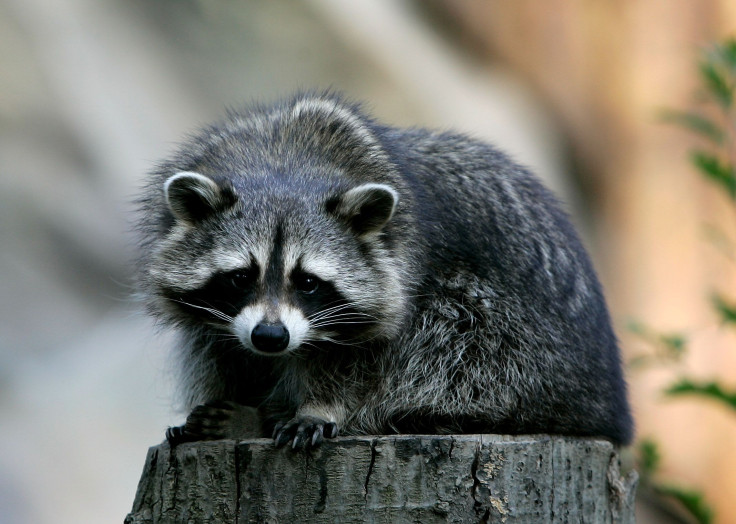‘Zombie-Like’ Raccoons, Carrying Distemper Virus, Behaving Bizarrely In Ohio

Racoons caused quite a racket in the city of Youngstown, Ohio, over the weekend forcing residents to call the police to deal with their unusual, almost “zombie-like” behavior.
While the police have ruled out the possibility of the raccoons acting abnormally due to rabies, the Ohio Department of Natural Resources said that the animals probably have distemper, reports ABC affiliated WYTV.
“It’s mostly spread through inhalation, but any contact with a raccoon can be dangerous,” Margee O’Donnell-Foust of Bark Mobile Pet Vet said. “It is not transmissible to humans, however dogs in the backyard or in the park could certainly contract the illness.”
According to PetMD, canine distemper is a serious viral disease that affects dogs and some wildlife species such as raccoons, skunks, wolves and foxes. It is contagious with no known cure. The Bark Mobile Pet Vet warned pet owners of Youngstown to make sure that their dogs are properly vaccinated. Distemper is generally not known to be dangerous to cats.
It is an airborne virus that can also spread through direct or indirect contact with an infected animal. Some of the symptoms include reddened eyes, watery discharge from the nose and eyes, lethargy and fatigue, loss of appetite, persistent coughing, vomiting, and diarrhea. In extreme stages of the illness, canines may experience fits, seizures, paralysis, and attacks of hysteria.
Robert Coggeshall, one of the residents who was playing with his dogs in his yard, saw a raccoon approaching him. Although he hurriedly got his pets into the safety of his house, the raccoon did not stop. It went right up to his doorstep.
The raccoon also started acting in a way that was unlike any behavior seen in an animal of its species before. “He would stand up on his hind legs, which I’ve never seen a raccoon do before, and he would show his teeth and then he would fall over backward and go into almost a comatose condition,” Coggeshall told CBS affiliated WKBN.
He added that he was unable to drive the oddly behaving raccoon away as it refused to budge despite repeated efforts from his side. “He’d come out of it, walk around and then he’d do the same thing again. Get on his hind feet and show his teeth,” he said.
Coggeshall was not the only one who encountered a raccoon whose actions could not be explained. Fourteen other cases of strangely behaving raccoons were reported to Youngstown police in the month of March.
Most of these creatures have begun showing up during the daytime, although they are usually believed to be nocturnal animals. “What you are most impressed with is these animals walking extremely slowly, and not seeming to care about their surroundings,” said Donna Alexander, administrator for Cook County Animal & Rabies Control. “They are not showing any fear of humans. They are walking around during the daytime. Sometimes they lie down, even though they are completely awake.”
Many of the “zombie-raccoons” reported around the area were put down by the police. According to Geoff Westerfield, the department’s assistant wildlife management supervisor, raccoons carrying the distemper virus are not only harmful to canines but also to their own population.
“Raccoons are really prone to getting diseases that even amongst themselves can be devastating to the population,” Westerfield said, NBC affiliated WPXI reported. “When you end up with just a couple of individuals left that aren’t as susceptible to it, then the disease kind of dies out for a while until the populations grow again.”
© Copyright IBTimes 2024. All rights reserved.






















